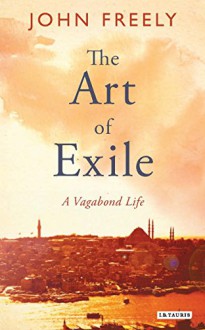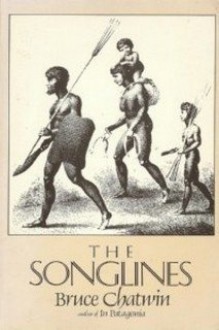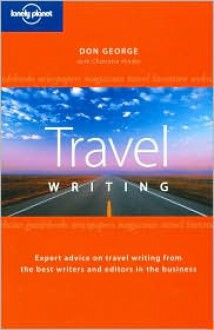
Thanks to Net Galley and to I.B.Tauris for offering me a copy of this book in exchange for an unbiased review.
I wish (like many of us) I was more of a traveller, but when I received an e-mail about this book, a memoir of sorts of John Freely, I was interested for many reasons. Although I hadn’t read his books, I’m always interested in books about writers (professional deformation, I guess). He’s written extensively about travelling, and as I said before I have a long list of places I’d love to visit, among them many Dr Freely has written about (and I’m always happy to be inspired and encouraged to take up more travel). And the title of the book, ‘the art of exile’ appealed to me because I’ve lived away from my own country for many years and I always feel an affinity for those in similar circumstances, even when their lives and mine couldn’t be more different.
John Freely has written many travel books, although as I understand from his own and others’ descriptions, they are not your standard travel book, but rather investigations and reflections about culture, architecture, literature, music, and he has researched extensively the topics of Istanbul, Greece, Physics, classical history, literature… He is a true polymath, a born lecturer and teacher, and knowledge pours out of every page.
Freely structures the book as an autobiography, and I found the story of his upbringing very touching, as it reflected that of many emigrants from Ireland (but not exclusively) who sailed away searching for a better life elsewhere. History has a way of changing settings and actors but it does indeed repeat itself, as we can see in the continued story of both emigrants and refugees that carries on to the present.
The author doesn’t dwell too much on the difficult circumstances of his childhood and family, lack of money, working as a child and living hand-to-mouth. That was how things were at the time and he was expected to and did the best he could. He went to war when he was only 17 after dropping out of high school, and that was the beginning of a life of travelling. Even in those circumstances he loved books and reading (he had studied with fascination a book about the wonders of the world his grandfather had brought back to Ireland from the Crimean War) and he educated himself by reading a catalogue of recommended lectures a military priest gave him whilst traveling to China. Mr Freely is a connector and communicator who made friends everywhere he went and was lucky to get and take good advice. He decided to follow advice and took advantage of the GI bill, he studied Physics and he did well, as he reflects upon, with surprise, a few times throughout his life. His love for knowledge and his thirst for travelling combined into a lifelong journey and he found a more than willing partner in his wife, Toots.
Although he does not talk in detail about such things as feelings, it’s not difficult to read between the lines and sometimes he says more when he doesn’t elaborate on topics that when he does (his muted comments about his son’s difficulties). His vignettes of early married life and his love for his wife come through loud and clear.
Once the couple move to Istanbul and Dr Freely starts his international teaching career the book becomes a catalogue of trips, not in detail but mostly as itineraries, interspersed with references to his career moves and to his published books. There are brief moments of lyrical descriptions that hint at wonders to be had in the full books, and he ponders upon those moments when they were the only western travellers in some of the locations and they could feel history at its fullest. He quotes the classics and is happy to share the experiences and moments he lived with his friends and collaborators, always giving credit where credit is due. He talks with warmth and affection of the institutions he’s worked in and is always grateful and happy to mention other’s achievements. I could not follow all the itineraries in detail and didn’t always know who everybody was, although it didn’t seem that important. I’m convinced the book would be a great read for those familiar with his work or interested in it that would be able to provide the background and fit all the pieces of the puzzle in but it would work well as an introduction to the topic of his books and his life.
There are moments that will feel familiar, easy to connect with and will touch everybody, like his visits to Ireland, back to the old home, the autobiographical details of life in Ireland and old New York when he was a young man, and the latter part of the book, when his wife becomes ill and dies and he has to carry on the journey alone (not a spoiler as it’s not that kind of story).
I thought I’d share some of his comments towards the end of the book, which I must admit had me in tears (as by then I’d become another exile and vagabond with them). He is talking here about writing this book:
When the book on Homer was finished I began working in earnest on the story of our own odyssey, The Art of Exile, particularly after I looked at a photograph of Toots taken on her 80th birthday, when the sight of her wearing a Byzantine tiara reminded me once again that she was in fact my queen, though I’d had no kingdom to offer her, just a lifelong journey.
Now I have become my own Homer, composing the story of a life perpetually on the move, always an exile…
I’m not sure this is a book for everybody, as it’s full of brief descriptions, names, quotes and dates, and travels, although some parts of it would be enjoyed by most people. Personally, I’d love to go for a walk through Istanbul, Naxos, or anywhere with Dr Freely as a guide, telling me all he knows about the many places he’s visited, and with classical references. As I don’t think that’s likely to happen, this book provides a good substitute, and has encouraged me to look into his other books.
And here, I share Dr Feely’s quote of the Odyssey that is perfect for the book.
As you set out for Ithaka
Hope your road is a long one,
full of adventure, full of discovery…
May there be many summer mornings,
when, with what pleasure, what joy,
you enter harbours you’re seeing for the
first time… But don’t hurry the journey,
at all,
Better if it lasts for many years.
So you’re old when you reach the island
… Ithaka gave you the marvellous
journey.
Without her you wouldn’t have set out.


 Log in with Facebook
Log in with Facebook 








